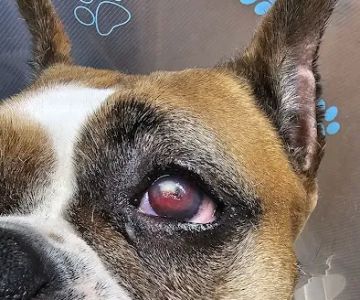Do You Need a Masters to Be a Veterinarian?
- Education Path to Becoming a Veterinarian
- Do You Need Veterinary School?
- Is a Master's Degree Necessary for Veterinarians?
- Alternative Paths to Becoming a Veterinarian
- Real-Life Experience: Veterinarians Without a Master's Degree
- What to Do Next If You Want to Become a Veterinarian
Education Path to Becoming a Veterinarian
Becoming a veterinarian is a rewarding career that requires a significant amount of education and training, but does it require a master's degree? The answer may surprise you. Unlike many careers in the medical field, veterinarians do not need a master's degree to practice. Instead, aspiring veterinarians must attend a specialized veterinary school after completing a bachelor’s degree, typically in a science-related field. This specialized program typically lasts four years and results in a Doctor of Veterinary Medicine (DVM) degree.
The educational path to becoming a veterinarian involves several years of hard work, as the curriculum covers subjects like anatomy, microbiology, surgery, and pharmacology. Although a master's degree is not required, the educational journey is no less intense. I remember speaking with a veterinarian who told me about the rigorous coursework and long hours during veterinary school—it's definitely a commitment, but the rewards are substantial.
Do You Need Veterinary School?
While it’s true that a master's degree is not required to be a veterinarian, attending an accredited veterinary school is essential. Veterinary school is where future veterinarians are trained to handle animals, diagnose diseases, perform surgeries, and provide proper care. The process is competitive, and gaining acceptance into veterinary school often requires a strong academic record, relevant volunteer work, and sometimes additional certifications.
When I spoke with a recent graduate of veterinary school, they shared their experience about how competitive the application process was, with hundreds of applicants vying for a limited number of spots. Their advice to anyone pursuing a career as a veterinarian was clear: get as much experience with animals as possible, and ensure your undergraduate studies focus on the sciences. This is because veterinary schools are looking for candidates who have a deep understanding of animal biology and a passion for animal care.
Is a Master's Degree Necessary for Veterinarians?
The short answer is no—veterinarians do not need a master's degree. A Doctor of Veterinary Medicine (DVM) degree is all that is required to practice as a veterinarian. However, there are cases where a master's degree could be beneficial. For example, some veterinarians choose to specialize in certain fields, such as veterinary surgery, internal medicine, or pathology. In these cases, additional education or a master's degree might be needed to gain advanced knowledge in a specific area. But, in general, the DVM degree is sufficient to become a practicing veterinarian.
Interestingly, I’ve met several veterinarians who chose not to pursue further studies after receiving their DVM. One veterinarian I spoke with chose to focus on animal care and emergency surgery, feeling that the DVM provided all the training they needed. On the other hand, a few of their colleagues decided to pursue specialized master's degrees in veterinary science to further their expertise. The choice depends largely on your career goals within the veterinary field.
Alternative Paths to Becoming a Veterinarian
While attending veterinary school is the most direct path to becoming a veterinarian, there are alternative routes to gaining veterinary experience. For example, many veterinarians begin their careers as veterinary technicians or technologists. These roles involve providing hands-on care to animals under the supervision of licensed veterinarians and can serve as a stepping stone to veterinary school. Veterinary technicians and technologists typically complete associate or bachelor’s degrees and gain significant experience in animal care.
Another option for those interested in animal care is to pursue a degree in animal science or biology, which can help you gain a deeper understanding of animal physiology and behavior. From there, individuals might decide to continue their education with a DVM degree or explore other careers in the animal health industry, such as animal research or wildlife rehabilitation.
Real-Life Experience: Veterinarians Without a Master's Degree
There are many successful veterinarians who have not pursued a master's degree but still thrive in their careers. I remember chatting with Dr. Sarah, a local veterinarian who runs her own practice. She explained that while she was deeply passionate about animals and science, she never felt the need for a master's degree. Instead, her DVM and the years of hands-on experience working with animals were more than enough to build a successful career. She advised aspiring veterinarians that the most important factor is not whether you pursue a master’s degree, but whether you have a true passion for animal care and the ability to work well with animals and their owners.
What to Do Next If You Want to Become a Veterinarian
If you’re considering becoming a veterinarian and wondering whether you need a master's degree, the good news is that you don’t. What’s more important is that you dedicate yourself to obtaining a DVM and gaining practical experience in the field. Here's what you can do next:
- Complete a Bachelor’s Degree: Start by pursuing a bachelor's degree in a related field like biology, animal science, or chemistry.
- Gain Animal Experience: Volunteer or work with animals in shelters, clinics, or farms to get hands-on experience.
- Apply to Veterinary School: Prepare and apply to veterinary school, focusing on your academic credentials and experience with animals.
- Stay Committed: The road to becoming a veterinarian can be long, but with dedication, you’ll reach your goal.
If you are serious about pursuing a career as a veterinarian and need guidance, don't hesitate to reach out to educational advisors and professionals in the field. By following this path, you can become a skilled and successful veterinarian without the need for a master’s degree.











